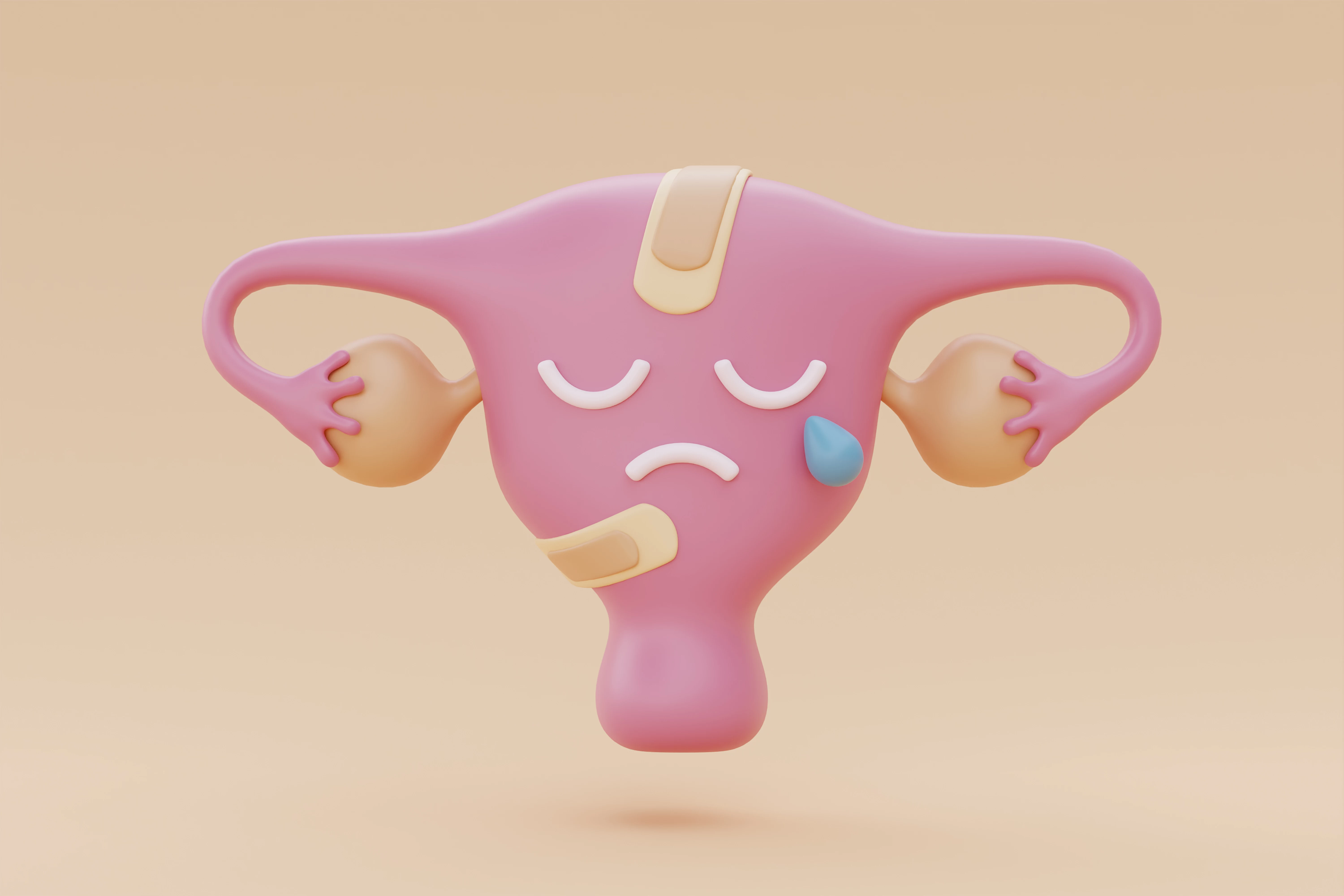
Vaginal Infections: Causes, Symptoms and Treatment Methods
- Vaginal Infections: Causes, Symptoms and Treatment Methods
- What are Vaginal Infections?
- What Are the Types of Vaginal Infections?
- What are the Causes of Vaginal Infections?
- What Are the Symptoms of Vaginal Infections?
- What are the Prevention Methods from Vaginal Infections?
- What are the Treatment Methods of Vaginal Infections?
What are Vaginal Infections?
Vaginal infections are an infection that occurs as a result of the disruption of the balance of bacteria or fungi in the vagina. The most common vaginal infections are vaginal yeast infections and bacterial vaginosis.
What Are the Types of Vaginal Infections?
There are many different types of vaginal infections. These include:
- Vaginal yeast infections: It occurs as a result of overgrowth of Candida type fungi inside the vagina. It can cause itching, burning, discharge, pain and pain during sexual intercourse.
- Bacterial vaginosis: It occurs as a result of the decrease in the number of Lactobacillus bacteria in the vagina. As a result, harmful bacteria grow in the vagina and can cause bad odor, itching, burning and pain.
- Trichomonas infection: It is an infection caused by the parasite Trichomonas vaginalis. It is usually sexually transmitted and can cause pain, burning, discharge, bad odor and itching during sexual intercourse.
- Urinary tract infections: Urinary tract infections occur as a result of the spread of bacteria along the urinary tract. Symptoms such as frequent urination, burning sensation, pain, changes in urine color and pain in the groin may be seen.
- Herpes: Genital herpes is a viral infection caused by the herpes simplex virus. It is contagious and can be transmitted through sexual contact. Sometimes there are no symptoms, but symptoms such as rashes, pain, itching, and fatigue may occur.
The symptoms of these infections can be different from each other and their treatments are also different. Therefore, it is important to consult a healthcare professional for proper diagnosis and treatment.
What are the Causes of Vaginal Infections?
Among the factors that cause vaginal infections, there are factors such as disruption of the balance of the vaginal microbiome and weakening of the natural defense mechanisms in the vagina. Some factors are:
- Fungi: Candida type fungi can cause vaginal yeast infections if they multiply more than normal in the vagina.
- Bacteria: A decrease in the number of Lactobacillus type bacteria in the vagina or an overgrowth of other types of bacteria can cause bacterial vaginosis.
- Antibiotic use: Because antibiotics kill beneficial bacteria in the body, they can cause vaginal infections by reducing the number of beneficial bacteria such as Lactobacillus in the vagina.
- Hormonal changes: Hormonal changes can increase the risk of infection by changing the pH of the vagina, especially in cases such as pregnancy, menstrual period, menopause and use of birth control pills.
- Inadequate hygiene: When adequate hygiene rules are not followed, not changing sanitary pads often enough, especially during menstrual periods, can lead to infections.
- Malnutrition: The body's immune system can be more resistant to infections when it is kept strong with adequate nutrition and vitamin intake. In case of malnutrition or nutrient deficiency, the immune system can weaken and cause vaginal infections.
- Sexual activity: Sexual activity can cause changes in vaginal pH and transfer of bacteria to the vagina. This can increase the risk of infection.
One or more of these factors can lead to vaginal infections.
What Are the Symptoms of Vaginal Infections?
Symptoms of vaginal infections can vary depending on the type of infection. But the most common symptoms are:
- Itching: An itchy feeling in the vagina or vulva is one of the common symptoms of many vaginal infections.
- Discharge: In vaginal infections, the discharge may be odor or odorless, white, yellow, green or gray in color.
- Burning: Burning or pain in the vagina or vulva is another sign of infection.
- Pain while urinating: Some vaginal infections can cause symptoms of cystitis, such as burning or pain when urinating.
- Pain during sexual intercourse: Pain in the vagina or vulva can also occur during sexual intercourse.
- Bad odor: In some vaginal infections such as bacterial vaginosis, bad odor may be felt.
- Swelling of the inner lips: Inflammation caused by infections can cause swelling and redness of the inner lips.
One or more of these symptoms can be seen together. However, these symptoms may not always indicate a vaginal infection. Therefore, it is important to consult a healthcare professional for proper diagnosis and treatment.
What are the Prevention Methods from Vaginal Infections?
The following steps are recommended to avoid vaginal infections:
- Complying with hygiene rules: Keeping the vagina clean and dry reduces the risk of infection. Changing daily pads or tampons frequently, cleaning the vaginal area from front to back after using the toilet, wearing cotton underwear instead of tight underwear can reduce the risk of infection.
- Limiting the use of antibiotics: Antibiotics can disrupt the balance of the vaginal flora by reducing the number of healthy bacteria. This can increase the risk of infection. Antibiotics should only be used with the advice of a doctor.
- Complying with sexual hygiene rules: Using condoms during sexual intercourse can help prevent sexually transmitted infections.
- Using probiotics: To maintain the balance of the vaginal flora, it is recommended to consume foods containing natural probiotics or to take probiotic supplements.
- Paying attention to other factors: Factors such as pregnancy, diabetes and high stress levels can affect the balance of the vaginal flora. Therefore, paying attention to these factors can also reduce the risk of infection.
It is important to pay attention to hygiene rules and healthy lifestyle habits to avoid vaginal infections. However, some vaginal infections can affect some women more, so it's important to see a doctor when symptoms are noticed.
What are the Treatment Methods of Vaginal Infections?
Treatment methods for vaginal infections depend on the type of infection. Most vaginal infections can be treated with medications or other treatments. Treatment methods may include:
- Antifungal drugs: Vaginal yeast infections can be treated using antifungal drugs. These drugs relieve itching, burning and discharge caused by fungus.
- Antibiotics: Some vaginal infections, such as bacterial vaginosis, can be treated using antibiotics. Antibiotics kill the bacteria causing the infection and relieve symptoms.
- Probiotics: Probiotics can help treat vaginal infections by increasing the number of healthy bacteria in the vagina. Probiotics can often be taken orally or administered as a vaginal suppository or cream.
- Other treatment methods: Some vaginal infections, especially in severe cases, may require other treatment methods. For example, viral infections such as genital herpes are treated with antiviral drugs. Urinary tract infections can be treated with antibiotics and increasing fluid intake.
It is important to always consult a healthcare professional for the treatment of vaginal infections. Self-treatment may cause the infection to get worse, or improper treatment may cause the infection to persist.





